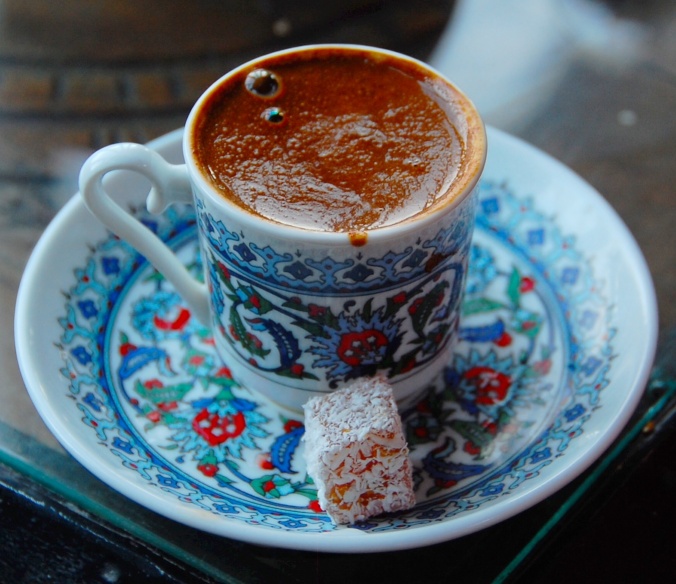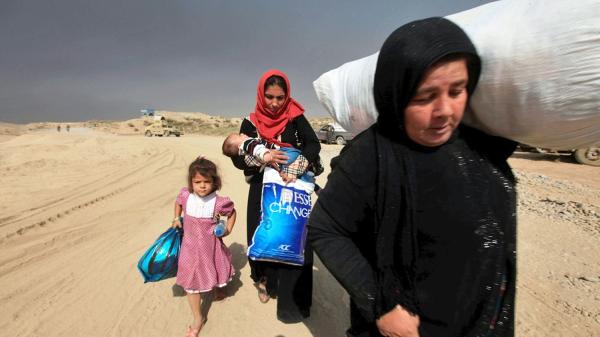For a long time, I have suspected that God doesn’t value efficiency in the same way that modern Americans do. I have found that stating this makes people uncomfortable. That’s because we know that God is perfect, and we think that efficiency is good, therefore God must be efficient. And it is good–up to a point–but it is not infinitely good. People are always more important.
God is extravagant. He is lavish. I have proof. Just look at Jesus. Let’s start with the miracle of the loaves and fishes, the one with the 12 baskets of leftover bread. Have you ever thought about that? Why were there leftovers? If an American was doing that miracle, there would have been just exactly enough for everyone to be full, but God kept going. Or the miracle at the wedding at Cana. It’s the end of the party, and Jesus just made gallons of excellent wine! I imagine all the guests saying, “Well, I could stay a bit longer!”
Or then there’s his travels. How he “had to pass through Samaria” in John 4, even though it was out of his way. It wasn’t the short cut to Jerusalem at all. But he was on his way to meet someone, and bring her peace and reconciliation, and she wins over efficiency of time. Or look at his teachings in Matthew 6. God creates little flowers with such extravagant attention to detail that they are beautiful beyond the most expensive designers, and they are literally here today and gone tomorrow. Think of an apple tree blooming pink and white in the spring in the middle of a forest glade, a forgotten remnant of a long-ago picnic, unseen. Or the way the sunlight catches the bend of a river at a certain time of year, a time when no one is there to appreciate it.
I was thinking about this because we had our annual Christmas party for the refugee and immigrant community (primarily Middle Eastern) last week. We had about 330 people there, although getting an accurate count was impossible. The children swirled in and out of the main room, women popped in and out to get henna done, teenagers came and went, forming little groups on their phones in the hall, people arrived late. We had a henna table, and a photo booth, and a kids’ program, plus a gingerbread house decorating contest for teenagers. We had a huge buffet from a local Iraqi restaurant, featuring kabobs and chicken and falafel, rice and hummus and taziki, a separate table groaning under the weight of baklava, chocolate mint cookies, shortbread, oranges. There were 15 cheese pizzas from Costco in the kids’ room. We had live music and door prizes. And my husband gave a short message from Luke 2. In a year when things just seem to be falling apart, with protests and lives lost in Iraq, Iran, Lebanon, Syria, and many other places; in a time when our nation is divided and the administration has put a halt to any more refugees coming and many of our friends wait desperately for news of loved ones, he spoke of hope, of good news of great joy to all people, that a Saviour had come.
People mostly listened, although not all. This is a difference I’ve noticed between Arab and American culture. In a setting like that, Americans would listen politely whether they agreed or not, but Arabs will chat and wave to friends and in general carry on. I imagine it was like this during the time of Jesus as well. I doubt those huge crowds were sitting in rows like Sunday morning; I’m sure the women were chatting and gossiping, babies on hips, and the men listening a little more closely but still getting sidetracked by children darting amongst their legs.
One woman listened closely that night though. Afterwards she said to the one who’d invited her, “I have never thought about Jesus like that. This is amazing. I need to rethink everything.”
I follow a God who throws huge parties in heaven for one sinner who repents, and who loved humanity in the most costly way possible. He sent countless angels to a rag-tag group of shepherds, unwashed and sleeping rough in their fields at night, when only one was overwhelming enough. He exudes love and welcome.
And so it is possible that our whole extravagant party, with all the expense and headache and sore feet and chaos, was just for that one woman. She went home with her heart alight, pondering these things like Mary of old. And if it was, I am content.








